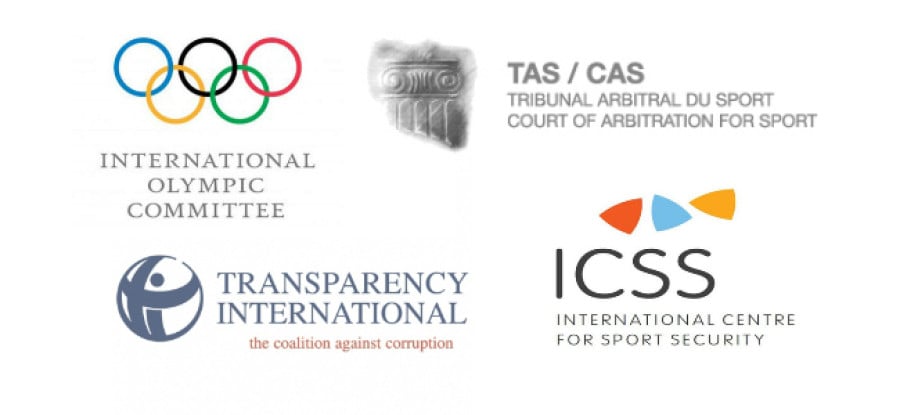An overview of the latest match-fixing policy developments in 2015

Policy making in the field of match-fixing, and all activities associated with it, continues apace in 2015 by sports governing bodies (‘SGBs’), governmental bodies and non-governmental organisations (‘NGOs’), or a combination of the three working together.
There is an ever growing recognition that the fight against match-fixing cannot be undertaken by one stakeholder group alone and co-operation on a global scale is what is required to both prevent and prosecute, with the former being preferable but the latter being inevitable.
This blog will provide an overview and briefly analyse the recent policy developments by organisations that fall into all three of the aforementioned categories: the International Olympic Committee (‘IOC’), Transparency International (‘TI’), the United Nations Office on Drugs and Crime (‘UNODC’) and the International Centre for Sports Security (‘ICSS’).
IOC’s roadmap for future action in line with Agenda 2020
On 13 April the IOC hosted its first International Forum for Sports Integrity1 (‘IFSI’), with representatives from governments, SGBs and betting operators amongst others (full list of participants), at which it looked at adopting updated measures and actions in the field of match manipulation which would further both the work the IOC had done since 2006 (for further background see this article2) and Recommendation 16 of the IOC’s recently adopted Agenda 20203 for reform of the Olympic Movement:
“Recommendation 16
Leverage the IOC USD 20 million fund to protect clean athletes
The IOC is to use its extra USD 20 million “Protection of clean athletes” fund:
- USD 10 million to develop robust education and awareness programmes on the risk of match-fixing, any kind of competitions and related corruption.
- USD 10 million to support projects offering a new scientific approach to anti-doping.”
Indeed in his opening remarks4 at the IFSI, IOC President Thomas Bach mentioned in particular: the need to protect clean athletes, the proportionality of sanctions and co-operation between all interested stakeholders.
The headline to come out of the IFSI was the introduction of a new reporting mechanism, the IOC's Integrity and Compliance Hotline. There is some considerable conjecture in the sporting community about the best system to adopt when offering participants the opportunity to report any information they may have regarding the manipulation of sporting events, which is vital. The approach the IOC has adopted is undoubtedly spurred by the acknowledged presence of organised crime and peer pressure, both of which are ways in which people can be persuaded from coming forward, as the so-called “important considerations” listed are: Confidentiality, Anonymity and Protection.5 However, an anonymous reporting system means that the SGB and/or law enforcement body may not be able to follow-up with or check the veracity of the information provided by a participant, or indeed any other person outside the sport (i.e. a fan or member of the public), and the SGB cannot monitor whether participants are complying with their duty to report which is present in a number of SGBs rules/regulations. Perhaps an acceptable middle ground would be to guarantee anonymity should charges be brought, and formal evidence required, to the person who provides the information up to and including a trial or hearing. In a sporting context this approach has already been taken by the Court of Arbitration or Sport (‘CAS’) in FK Pobeda, Aleksandar Zabrcanec, Nikolce Zdraveski v UEFA (CAS 2009/A/1920).6
The decisions taken at the IFSI were far broader than simply in relation to reporting, indeed they provided a “roadmap for future action”, with recommendations falling under three headings. The first being 'Education and Information'7 which included:
- diverse educational tools that cascade down through sport and are not just focussed at the elite level – this would ensure that an integrity/anti-corruption culture is built-up throughout sport;
- betting operators support awareness-raising programmes – presumably both in terms of expertise and funding, which is already taking place, for example the Professional Players Federation sports betting integrity education program is delivered in partnership with sports betting operators bet365, Betfair and Ladbrokes; and
- educating law enforcement – this is paramount in the author’s opinion given the often under-appreciated complexities of match-fixing as a crime and the actors involved.
The second area of 'Intelligence and Investigation'8 focuses on the exchange of information between stakeholders, without which match-fixing activities cannot be successfully identified and then dealt with either by SGSs or law enforcement, and making sure there are clear processes in place for information gathering and investigations. Unfortunately regarding the latter, given it is only a recommendation, there is no further detail as to how to implement it, however from the author’s work and experience there are a variety of systems to suit the needs and resources of all SGBs and international federations (‘IFs’).
The third and final area of focus for the IFSI is 'Regulation and Legislation'.9 The most significant policy development in 2014 was the opening for signature of the Council of Europe’s Convention on the Manipulation of Sports Competitions (the author’s analysis of it can be read here10). The IFSI encourages as many national states as possible to sign that Convention. It also calls on sports betting entities to tighten their regulatory approach to avoid any conflict of interests and also to ensure that their terms and conditions allow them to disclose information to the relevant stakeholder despite any data protection laws in place. Finally, the IOC will look to introduce minimum standards to be included the rules/regulations for all IFs who are part of the Olympic Movement to try and achieve some consistency of approach.
Furthermore, after the IFSI the IOC's Ethics webpage on Betting has also been updated.
To continue reading or watching login or register here
Already a member? Sign in
Get access to all of the expert analysis and commentary at LawInSport including articles, webinars, conference videos and podcast transcripts. Find out more here.
- Tags: Anti-Corruption | Court of Arbitration for Sport (CAS) | Criminal Law | Governance | International Centre for Sports Security (ICSS) | IOC | Match-Fixing | Regulation | Transparency International | United Nations Office on Drugs and Crime (UNODC)
Related Articles
- Combating match-fixing in sport - a guide to the Council of Europe’s Convention on the Manipulation of Sports Competitions
- Whistleblowing in Sport – Part 2: Investigations and Disciplinary Proceedings
- Integrity in sport update: Gibraltar FA educates community in match-fixing
- Integrity in sport update: Greece amends law to avoid international football ban
Written by
Kevin Carpenter
Kevin is a advisor and member of the editorial board for LawInSport, having previously acted as editor.
Kevin specialises in integrity, regulatory, governance and disciplinary matters. His expertise and knowledge has led him to be engaged by major private and public bodies, including the IOC, FIFA, the Council of Europe, INTERPOL and the United Nations Office on Drugs and Crime (UNODC), as well as making regular appearances internationally delivering presentations and commenting in the media on sports law issues.
His research and papers are published across a variety of forums, including having a blog on LawInSport.

 Global Summit 2024
Global Summit 2024